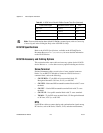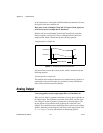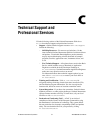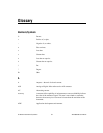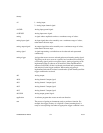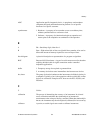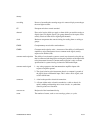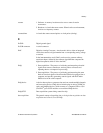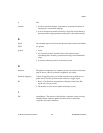Glossary
NI 6238/6239 User Manual G-2 ni.com
AI 1. Analog input.
2. Analog input channel signal.
AI GND Analog input ground signal.
AI SENSE Analog input sense signal.
analog A signal whose amplitude can have a continuous range of values.
analog input signal An input signal that varies smoothly over a continuous range of values,
rather than in discrete steps.
analog output signal An output signal that varies smoothly over a continuous range of values,
rather than in discrete steps.
analog signal A signal representing a variable that can be observed and represented
continuously.
analog trigger A trigger that occurs at a user-selected point on an incoming analog signal.
Triggering can be set to occur at a specific level on either an increasing or
a decreasing signal (positive or negative slope). Analog triggering can be
implemented either in software or in hardware. When implemented in
software (LabVIEW), all data is collected, transferred into system memory,
and analyzed for the trigger condition. When analog triggering is
implemented in hardware, no data is transferred to system memory until the
trigger condition has occurred.
AO Analog output.
AO 0 Analog channel 0 output signal.
AO 1 Analog channel 1 output signal.
AO 2 Analog channel 2 output signal.
AO 3 Analog channel 3 output signal.
AO GND Analog output ground signal.
application A software program that creates an end-user function.
arm The process of getting an instrument ready to perform a function. For
example, the trigger circuitry of a digitizer is armed, meaning that it is
ready to start acquiring data when an appropriate trigger condition is met.



